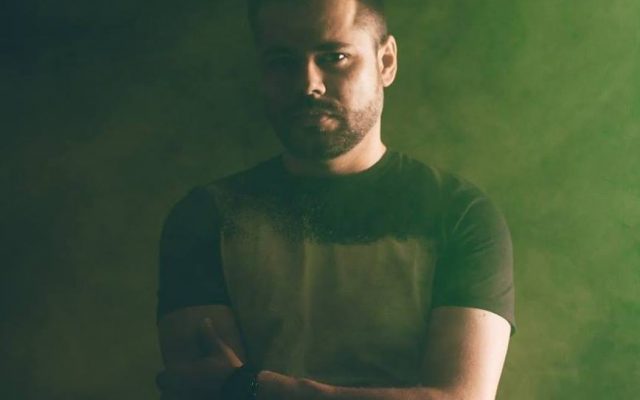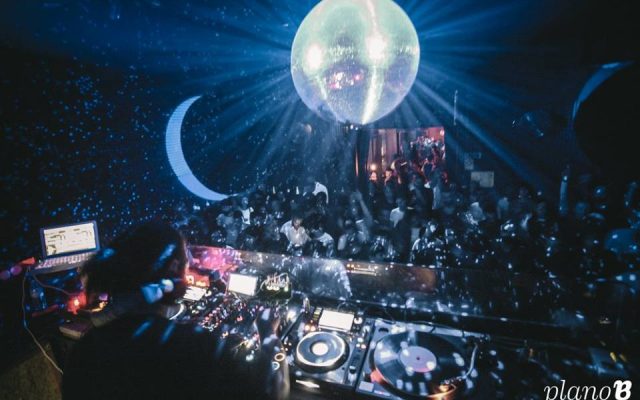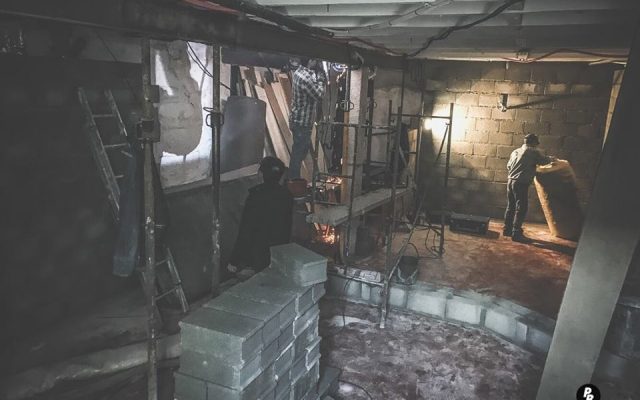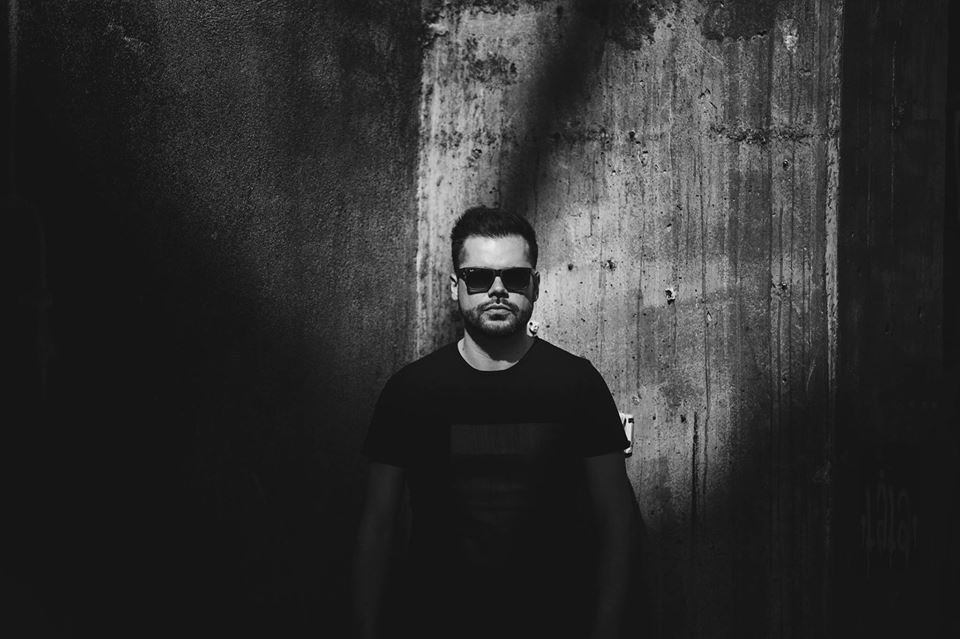Filipe Galante aka Pixel82 è sicuramente uno dei Dj più influenti del Portogallo, uno che i club da quelle parti li ha visti nascere e crescere, contribuendo anche a crearne di nuovi. 15 anni di carriera, direttore artistico del PlanoB (probabilmente il migliore club di Porto) e A&R della Cubo records. Insomma uno di quei personaggi che siederesti ad ascoltare come un bambino, a maggior ragione dopo la sua ultima collaborazione con Robert Owens, uno dei creatori dell’house, forse meno conosciuto di Frankie Knuckles e Larry heard (Mr. Fingers) ma non per questo meno influente.
Noi siamo riusciti ad incontrarlo e farci raccontare qualche aneddoto.

(ENGLISH VERSION BELOW)
Prima di tutto, parliamo un po’ di te: chi è Pixel82 oggi? Un DJ? Un produttore? Un imprenditore? Nessuno di questi?
Beh, Pixel82 è il mio alias quando faccio musica elettronica. Io sono prima di tutto un Dj e producer house e techno, con un amore per tutta la musica, fin dall’adolescenza. Sono comunque coinvolto come Filipe Galante in varie attività legate alla musica: insegno produzione musicale in varie scuole, sono uno dei proprietari e mi occupo del booking al club Plano B di Porto, cosa che faccio anche per altri eventi. Al momento sto anche aprendo uno studio chiamato Porto Beats a Porto, incentrato principalmente sulla produzione di musica elettronica. Quindi sì, potrei dire che sono un po’ tutto di quello che mi hai chiesto.
Stai passando musica da più di 15 anni ormai, quali sono le cose che pensi siano cambiate di più durante questo periodo?
Penso che una delle cose che è cambiata di più sia il numero di festival che esistono in questi giorni e la consapevolezza della musica elettronica da parte del pubblico in generale. 15 anni fa era decisamente molto più underground. La scena underground è ancora viva, ma non chiamerei underground un artista che chiede 10k. Non penso che sia necessariamente un male. Come produttore musicale se una persona viene toccata profondamente dalla mia musica sono felice, ma più persone la sentono meglio è (sorride, NdI). La musica è anche molto più accessibile che mai, il digitale ha davvero cambiato le regole del gioco. Io comunque continuo a comprare dischi in vinile perché alcune tracce incredibili si trovano solo in quel formato.
Quali sono gli artisti, i club, i movimenti più influenti che hanno plasmato te e il tuo stile?
Oh, molti, difficile nominarli tutti. Direi che, per quanto riguarda i movimenti, è stato l’elettroclash a farmi guardare al 4/4, perché ai tempi ero molto più interessato alla drum’n’bass. Anche la dubstep mi ha influenzato, più che altro perché era la prima volta che vivevo e vedevo emergere dal nulla un movimento, quando ancora vivevo a Londra e studiavo con Steve Goodman (Kode9). Non è un genere che passo ma ha ha influenzato il mio modo di pensare. In generale sento molto l’influenza dei suoni UK così come quelli di Chicago e Detroit.
Hai composto la tua ultima traccia, “Looking For You”, collaborando con Robert Owens. Com’è stato lavorare con uno dei padrini dell’house, uno che era lì a Chicago quando è iniziato tutto?
Oh, è stato fantastico! Come fan del genere, Robert è la voce dell’house per me, quindi è stato un privilegio poter lavorare con lui. In realtà è stato tutto molto naturale. Dopo una data insieme abbiamo deciso di sperimentare qualcosa in studio. Ho avuto un’idea che a lui è piaciuta subito, ha cantato perfettamente e in un’ora è stato fatto tutto. Robert è una persona straordinaria, oltre alla musica è stata creata un’amicizia. Attualmente sto producendo una traccia per lui e direi che puoi aspettarti presto altre collaborazioni.
Lisbona e Porto sembrano due città molto diverse, tu hai vissuto in entrambe: cosa hanno in comune e cosa le distingue?
In effetti lo sono, specialmente in questo periodo di gentrificazione. Lisbona è la capitale e ha più risorse. Il potere politico tende a dimenticare Porto purtroppo, questo ha fatto sì che fossero le società private a contribuire allo sviluppo di Porto, contribuendo a posizionare la città sugli itinerari musicali e turistici. In termini di musica, Lisbona ha il Lul, il Musicbox e il Kremlin. Porto ha il Plano B, il Gare e l’Industria, quindi abbiamo entrambi 3 buoni club, anche se Porto è molto più piccola. Parlando di stile di vita, Lisbona ha questa luce incredibile e il meteo è sempre ottimo, mentre Porto tende ad essere più cupa. Però le persone sono più calde e più pure a Porto, secondo me. Entrambe le città hanno in comune la grande ospitalità portoghese. Direi che adoro entrambe le città!
Il Portogallo è probabilmente uno dei paesi di cui si sente più parlare al giorno d’oggi: ieri la gente pensava che fosse parte della Spagna, oggi tutti vogliono trasferirsi qui. Cosa ne pensi di questa serie incredibilmente veloce di cambiamenti che il tuo paese sta attraversando?
È assolutamente vero! Quando sono andato per il mio Master in Sonic Culture 12 anni fa a Londra, all’ufficio scolastico pensavano addirittura che il Portogallo non facesse parte dell’UE! La maggior parte delle persone nel Regno Unito conosceva solo l’Algarve. Non posso incolpare nessuno di voler trasferirsi qui: cibo, tempo, persone incredibili… Abbiamo solo bisogno di un’economia migliore ma hey, non puoi avere tutto nella vita! Credo che stiamo attraversando un periodo di cambiamento che deve essere regolato in modo che le città non perdano la loro essenza, Lisbona penso la stia già perdendo. Allo stesso tempo, l’afflusso di stranieri è molto positivo, comporta scambi culturali, che ritengo siano sempre vantaggiosi, specialmente per la musica.
Come descriveresti la scena club portoghese? Pensi che abbia la sua identità personale o che stia imitando qualcos’altro?
No, penso che abbiamo un’identità nostra. Fin dai tempi dei rave, il Portogallo ha avuto un suo posto sulla mappa della musica dance elettronica, probabilmente non siamo molto bravi a venderci. Di recente artisti come Buraka Som Sistema e la gente di Principe si sono fatti notare con questo genere musicale nato a Lisbona, frutto del mix tra diverse culture che il Portogallo ha sempre avuto, fin dai tempi delle grandi scoperte. Quindi direi che perlomeno siamo bravi a assorbire e integrare facilmente varie influenze nel nostro suono.

Lavorare al PlanoB, uno dei club più importanti in Portogallo, ti dà la possibilità di modellare il suono di una città. Che impatto pensi di avere avuto a Porto?
È davvero un piacere portare gli artisti che amo di più a suonare nel mio club. In termini di influenza, credo che ne abbiamo avuta almeno un po’ nella vita notturna di Porto. 12 anni fa non c’era nulla da queste parti e noi siamo stati il primo club ad aprire con un mix tra musica elettronica di qualità e rock, con una politica di prezzi che permetta a chiunque ami la musica di poterla apprezzare. Cerchiamo di continuare ad evolverci e di guardare al futuro. A causa del successo, la nostra folla è cambiata e si è rinnovata, ma noi continuiamo ad avere sempre la stessa attitudine: buona musica e divertimento per tutti!
Tra tutti i contributi che stai dando alla scena, stai facendo anche A&R per Cubo Records. Come scoprite i talenti in un mercato saturo come quello di oggi?
Onestamente non è molto difficile. I talenti sono là fuori, devi solo trovarli su Soundcloud o attraverso le tue conoscenze. I talenti tendono a distinguersi, devi solo cercarli. Di solito, essendo attivo nel mondo della musica, le persone tendono a venire spontaneamente da me un po’ da tutte le parti.
Quali sono i tuoi progetti per il futuro?
Ho in ballo un remix per l’Ep di Robert Owens fatto dall’artista Karisma, sto anche finendo un disco techno che uscirà in vinile su Mont Lake, etichetta austriaca, con un remix di Jay Clarke, un artista che lavora molto per l’etichetta di Ben Klock. Sto anche lavorando ad un remix per la Fuse Records di Lisbona, un’etichetta con cui collaboro spesso. Oltre a questo, sto producendo una traccia per album di Robert Owens e sto producendo un album collaborativo con le tracce dei vari artisti che sono passati dalla mia residenza mensile JackYabody @ Plano B. Inoltre, sto aprendo il mio studio musicale Porto Beats, specializzato in musica elettronica e con una collezione di 30 sintetizzatori, hardware analogico, acustica e monitor calibrati alla perfezione e una grande sala di registrazione. In più diventerò anche padre per la prima volta quest’anno, quindi potrei dire che il 2018 sarà un grande anno!
Pixel82 ha anche selezionato per noi una top 10 dei migliori producer portoghesi e li ha raccolti in una playlist su Spotify:
ENGLISH VERSION
First of all, a let’s talk a bit about you: who is Pixel82 today? A DJ? A producer? A businessman? None of them?
So, Pixel82 is my electronic dance music alias. First and foremost I am a music producer and DJ of house and techno with a love for all music since his teens.
I do however am involved as Filipe Galante in various businesses connected to music. I teach music production at various schools, i am one of the owners and booker at Plano B club in Porto, and I’m also involved with bookings for other events. At the moment I am opening as well a new music studio called Porto Beats in Porto, that focuses on electronic music production. So yeah I could say I’m all that you asked!
You’ve been spinning records for more than 15 years now, what are the things you think changed the most during this time?
I guess one of the things that changed the most is the number of festivals you have these days and the awareness of electronic music in the general public. 15 years ago it was definitely much more underground. The underground still lives though, but I wouldn’t call an artist that makes 10k in fees underground. I don’t think this is necessarily bad though. As a music producer if one person is touched deeply by my music I’m happy, but the more people that hear it the better 🙂 Music is also much more accessible than ever, digital really changed the game. I do still buy some vinyl as some amazing tracks can only be found in that format.
What are the most influential artists, clubs, movements that shaped you and your style?
Oh some many, hard to name them all. I would say for movements it was electroclash that got me looking in 4/4 as I was more into d&b back then, dubstep influenced me in the way it was the first time I lived a movement as I saw it rising from nothing when I lived in London and studied with Steve Goodman (Kode9). I do not play it though it influenced my mindset.
I’m very influenced by the Uk sounds as well as Chicago and Detroit.
You composed your last song, “Looking For You”, collaborating with Robert Owen. How was working with one of the godfathers of House Music, that was there in Chicago when everything started?
Oh that was amazing. As a music fan first Robert is the house voice for me. So it was a privilege to be able to work with him. It was very natural actually. After a gig we decided to experiment something in the studio. I had an idea that he loved and he just sang perfectly in like 1h it was done. Robert is an amazing person and besides the music, a friendship was created. I’m currently as well producing a track for him and you can expect more collaborations soon.
Lisbon and Oporto look like two very different cities, you lived in both of them: what things do they have in common and what sets them apart?
They are indeed, especially in this days of gentrification. Lisbon is the capital and has more resources. The political power tends to forget Porto unfortunately. This led through to the development of Porto by private companies that helped to put Porto on the map of music and tourism. In terms of music, Lisbon has LUX, Musicbox and Kremlin. Porto has Plano B, Gare, and Industria. So we both have 3 good clubs, even though that Porto is much smaller. Lifestyle-wise Lisbon has this incredible sunlight and weather while Porto tends to be more Gloomy. People are warmer and purer In Porto in my opinion. They have in common the great Portuguese hospitality thought I think. I do love both cities!
Portugal is probably one of the most-spoken countries nowadays: yesterday people thought it was part of Spain, today everyone wants to move here. What do you think of this incredibly fast series of changes your country is going through?
That’s quite true! When I went for my MA in Sonic Culture 12 years ago I’m London, they thought Portugal was not part of EU in the school office! People mostly knew Algarve in the UK. I can’t blame people to want to move here though, incredible food, weather, people… We just need a better economy but hey, you can’t have all in life… I believe we are passing through a period of change that has to be regulated so that cities do not lose their essence. Lisbon to my eyes is losing it already. At the same time, the influx of foreigner is very positive in a sense of cultural exchanges, which I believe are always beneficial, especially for music.
How would you describe the Portuguese clubbing scene? You think it has its personal identity or that it’s imitating something else?
I think we have an identity. Since the heydays of rave, Portugal has been on the map for electronic dance music, we are just not good selling ourselves i guess. More recently artists as Buraka Som Sistema and the Principe crowd have opened ears with this music that was born in Lisbon, the fruit of the mix between different cultures that Portugal has always been able to do, since the discoveries time. So I guess we are good at absorbing and integrating easy various influences into our sound.
Working at PlanoB, one of the most important clubs in Portugal, gives you the chance to shape the sound of a city. What impact do you think you had in Oporto?
It does indeed, it’s a pleasure to bring the artists I love the most to play at my club. In terms of influence, I believe we had some in the shape of Porto nightlife. 12 years ago there was nothing on that area, and we were the first club to open with a mix between good quality electronic music and rock and with a price policy that allows anyone that likes music to be able to enjoy it. We try to keep evolving and looking into the future. Due to the success our crowd has changed and evolved throughout times, but we still look into it the same way. Good music and good fun for everyone.
Among all the contributions you’re giving to the scene, you’re also doing A&R for Cubo Records. How do you discover talents in an oversaturated market like the one out there?
It’s not to hard, to be honest, they are out there, you just have to find them on Soundcloud and through your peers. Good people tend to stand out, you just have to be looking for it. I´m also in the music business so people tend to come to me from various areas.
What are your projects for the future?
I have a remix coming for the Robert Owens Ep from the artist Karisma, I´m also finishing a techno record that will come out on Mont Lake from Austria on vinyl only with a remix by Jay Clarke, an artist that works a lot for Ben Klock’s label. I also have a remix lined up for Fuse Records from Lisbon, a label and production company that I work with a lot.
Besides this, I am producing a track for a Robert Owens album and I am producing a collaborative album with tracks from every artist that comes play on my monthly residence JackYabody @ Plano B. Also, I am opening up my music studio Porto Beats, which focuses on electronic music and has a healthy collection of 30 synths, analog hardware, fine-tuned acoustics and monitoring and a great recording room. And I am as well going to be a father for the first time this year, so I could say 2018 is the year.



